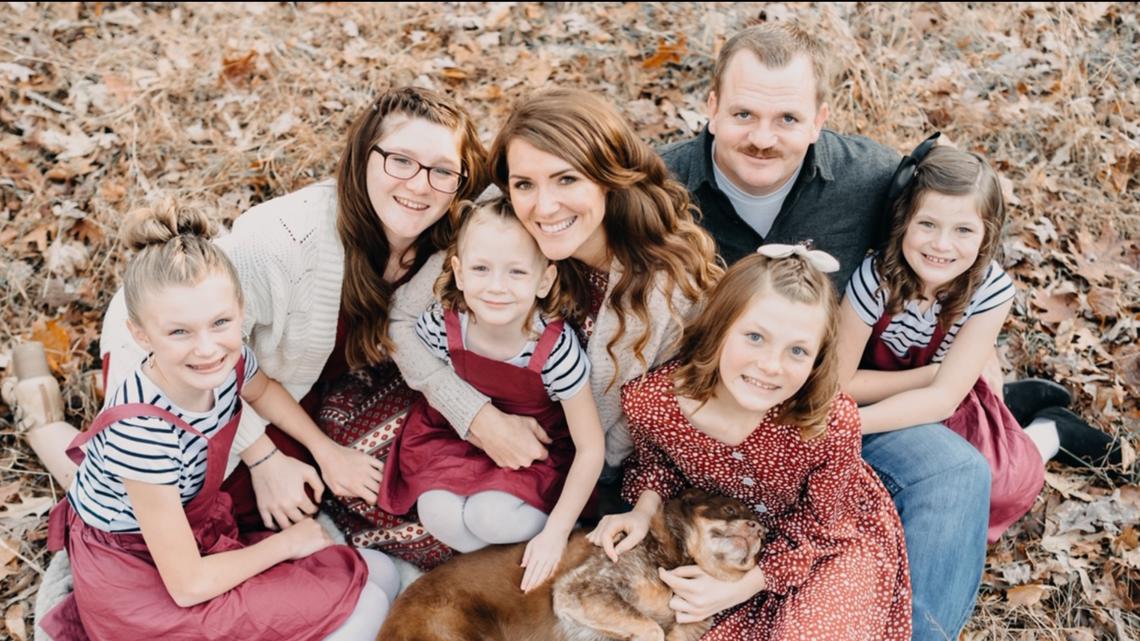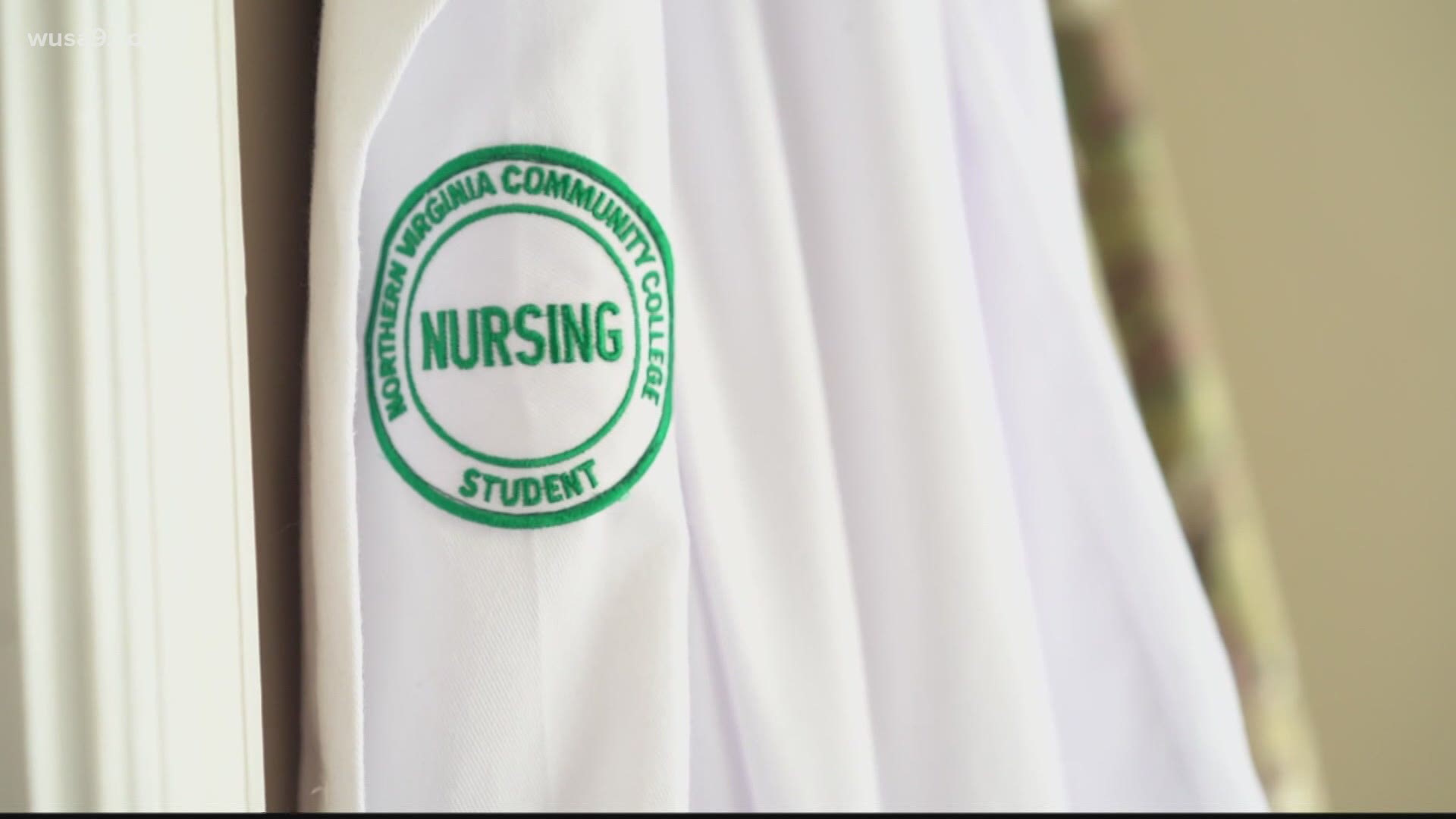ANNANDALE, Va. — When you marry into the military, you typically move every couple years. Because of this, some military spouses who are studying can have a tough time getting credits to transfer. In some cases, they even have to start the program over again.
This is the reality for nursing student Jeni Lyn Hatch.
"My husband joined the military, so we moved around quite a bit, and I’ve been trying to get back into nursing -- the healthcare field in general -- ever since," Hatch said.
The aspiring nurse wants to make a difference in the medical field, but is put through extra hurdles every time her husband is deployed to a different city.
"We are constantly being pushed back when you are in the military, or you were married to somebody in the military," Hatch said.
She had to learn the hard way that her credits did not always transfer with her. She wasn't alone.
"I reached out and talked with hundreds of military spouses, and they were all sharing their amazing stories of hard work and having to redo their credits, having to start over," Hatch said.
Hatch has one more year to complete and is currently in the midst of final exams.
"I have books and notes everywhere. I just feel like my brain is a computer with 1 million tabs open right now," Hatch said.
It's a process made even more challenging having to complete coursework online due to COVID-19.
"Going to online clinicals is so time-consuming, and it's so hard, because you are trying to learn from a computerized person that you cannot have a conversation with. It’s as close as you can get, I guess, but it is not the same thing," Hatch said.
Hatch said her fears are not only focused on making the grade, but also on whether or not she will be able to graduate next May before another possible deployment.
"I am nervous. There is still a big scare because we don't know what will happen this fall. We don't know if it will be online clinicals again, or what that it is going to look like. That is scary, too, because it is another semester. It is more clinical hours being influenced, and it is scary to not know if we are going to be able to get through this and finish this," Hatch said.


Hatch said now, more than ever, it's important to have a system in place for military spouses to transfer credits when they move. She also suggests allowing spouses to do their clinical hours at military hospitals, which would make the process more accessible.
"It is like getting to the finish line, you can see it, and it's there now. You feel like it’s attainable, and then to fall on your face. It's been super scary," Hatch said.
In the meantime, she is learning from the leaders who are now on the front line.
"We had the nurse manager come in and address the nurses and share what was going on and what their plan was. It was nerve-racking. It was scary for all the nursing students, but these amazing nurses; they were just ready to go. Their energy was contagious. I felt like after I left that room that I could do anything," Hatch said.
Even with so many unknowns, she continues to push forward stepping up to the challenge of helping others.
"Ultimately, it just comes down to us wanting to be the best nurses. It is more than just a grade for me, I want to be the best nurse. It is not just about passing a test. I want to take care of people to the best of my abilities," Hatch said.





